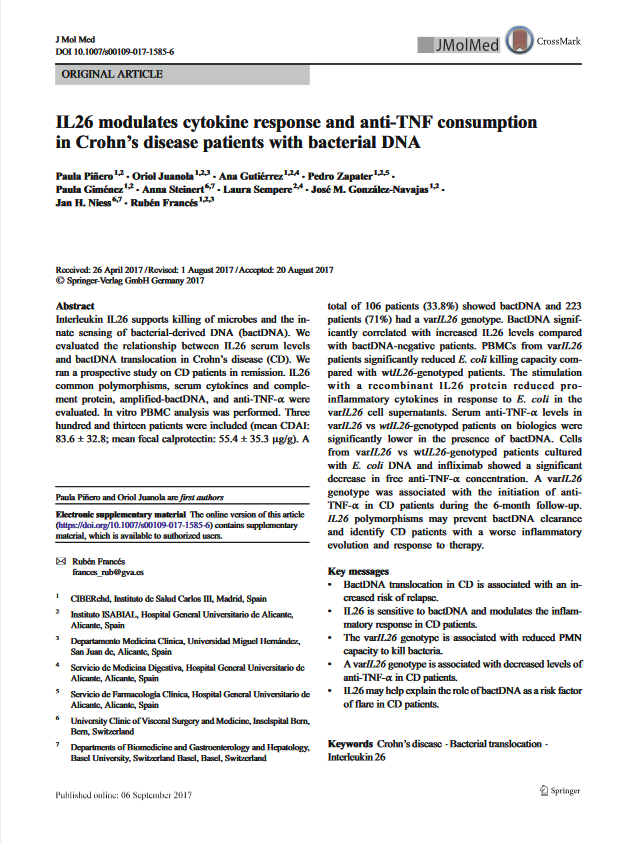30.09.2020
IL26 modulates cytokine response and anti-TNF consumption in Crohn's disease patients with bacterial DNA
J Mol Med (Berl), 2017
Abstract
Interleukin IL26 supports killing of microbes and the innate sensing of bacterial-derived DNA (bactDNA). We evaluated the relationship between IL26 serum levels and bactDNA translocation in Crohn's disease (CD). We ran a prospective study on CD patients in remission. IL26 common polymorphisms, serum cytokines and complement protein, amplified-bactDNA, and anti-TNF-α were evaluated. In vitro PBMC analysis was performed. Three hundred and thirteen patients were included (mean CDAI: 83.6 ± 32.8; mean fecal calprotectin: 55.4 ± 35.3 μg/g). A total of 106 patients (33.8%) showed bactDNA and 223 patients (71%) had a varIL26 genotype. BactDNA significantly correlated with increased IL26 levels compared with bactDNA-negative patients. PBMCs from varIL26 patients significantly reduced E. coli killing capacity compared with wtIL26-genotyped patients. The stimulation with a recombinant IL26 protein reduced pro-inflammatory cytokines in response to E. coli in the varIL26 cell supernatants. Serum anti-TNF-α levels in varIL26 vs wtIL26-genotyped patients on biologics were significantly lower in the presence of bactDNA. Cells from varIL26 vs wtIL26-genotyped patients cultured with E. coli DNA and infliximab showed a significant decrease in free anti-TNF-α concentration. A varIL26 genotype was associated with the initiation of anti-TNF-α in CD patients during the 6-month follow-up. IL26 polymorphisms may prevent bactDNA clearance and identify CD patients with a worse inflammatory evolution and response to therapy.
In this study, Shikari (Q-INFLIXI) Infliximab MBT-INF-FD-REMI0201 and Shikari (Q-ADA) Adalimumab MBT-ADA-FD-HUM0101 were used to measure free infliximaband adalimumab levels and to detect anti-drug antibodies.
>> View article


